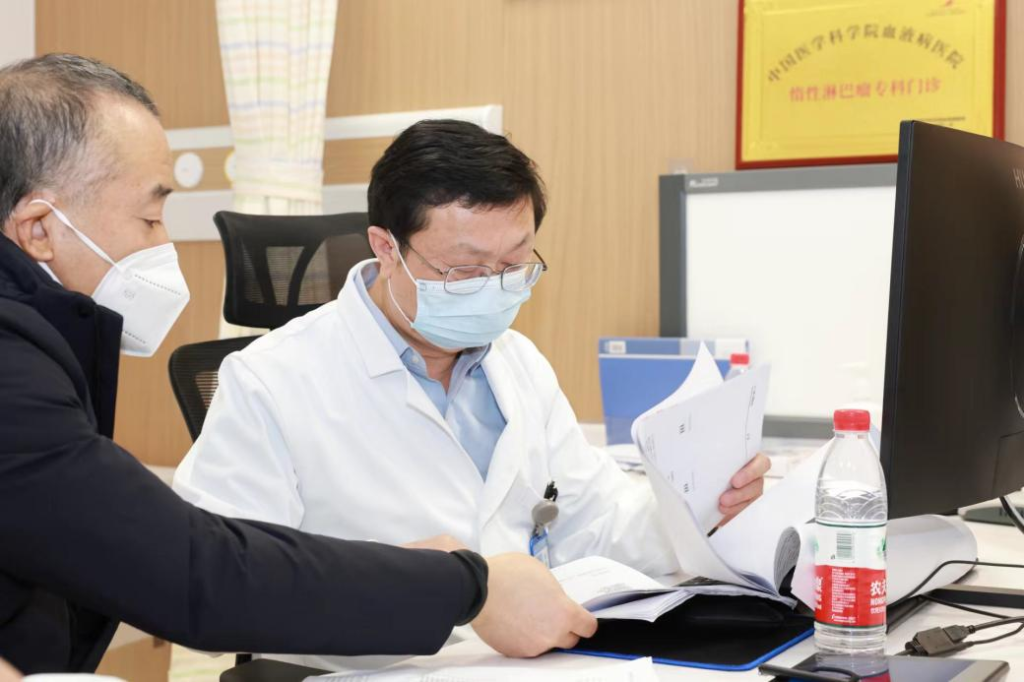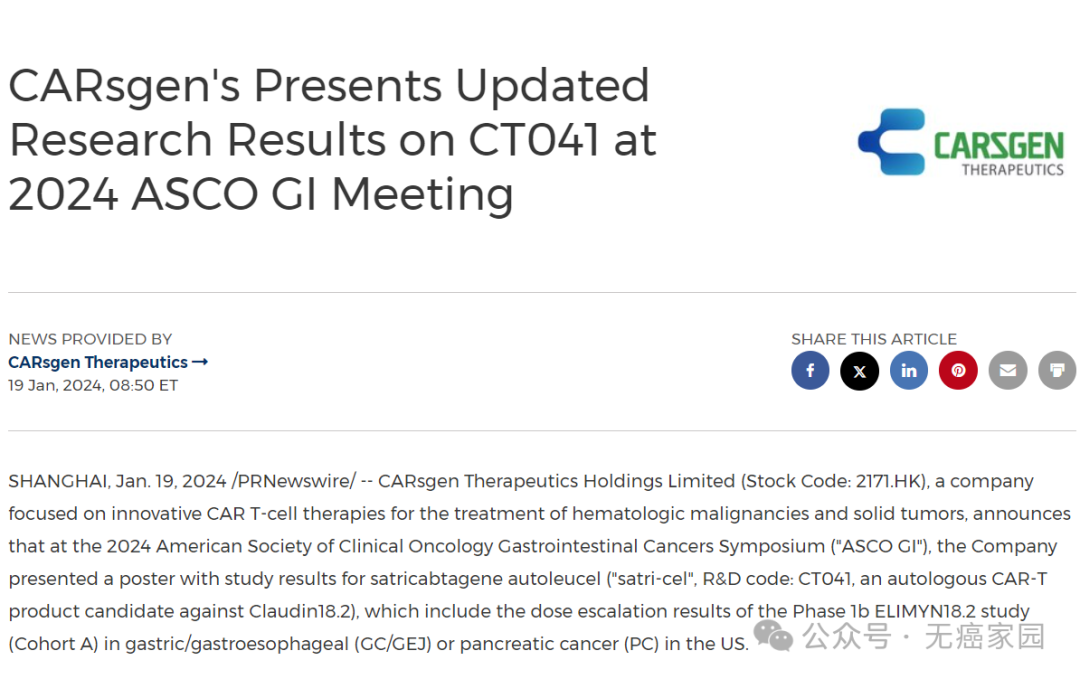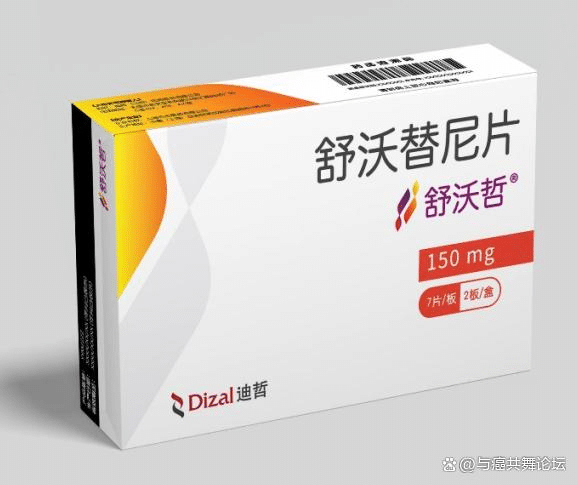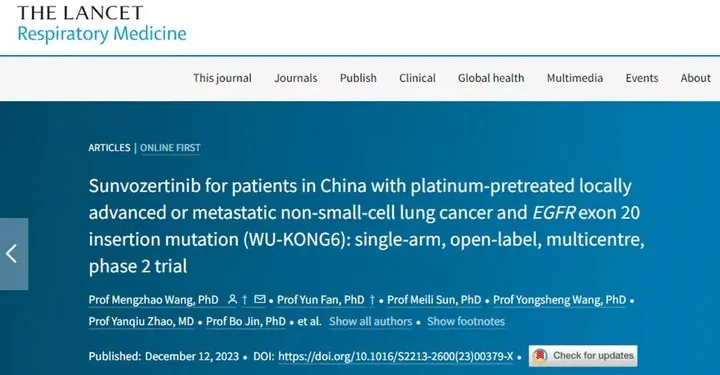Warning: Trying to access array offset on value of type bool in /www/wwwroot/www.medtourcn.com/wp-content/themes/medical-directory/framework/theme/medicaldirectory-image.php on line 78
Warning: Trying to access array offset on value of type bool in /www/wwwroot/www.medtourcn.com/wp-content/themes/medical-directory/framework/theme/medicaldirectory-image.php on line 79

One Year After Approval: How Effective is China’s First BCMA-Targeted CAR-T Therapy in Treating Multiple Myeloma?
### One Year After Approval: How Effective is China’s First BCMA-Targeted CAR-T Therapy in Treating Multiple Myeloma?

Multiple Myeloma
“In the past 20 years, the treatment of multiple myeloma has advanced rapidly, thanks in large part to the swift progress in drug development. Over the past year, China’s first independently developed and the world’s first fully human BCMA-targeted chimeric antigen receptor T-cell (CAR-T) therapy was approved. In our real-world clinical applications, we have treated over 20 patients with an overall effectiveness rate of nearly 100%.”
On June 30, 2024, exactly one year after the approval of China’s first BCMA-targeted CAR-T therapy (Iquilonsen Injection), and also the world’s first fully human BCMA-targeted CAR-T therapy, how effective has the treatment been for patients? Professor Qiu Lugui, Director of the Lymphoma Treatment Center at the Chinese Academy of Medical Sciences Hematology Hospital, was interviewed by the People’s Daily Health Client.
“Multiple myeloma has a slow onset and early stages often show no obvious symptoms, making it easy to misdiagnose. To date, once diagnosed, the vast majority of patients experience one or more relapses, entering a refractory state, which is an incurable disease,” Professor Qiu Lugui told the People’s Daily Health Client.
Professor Qiu explained that current drugs for treating multiple myeloma fall into three categories: immunomodulators, proteasome inhibitors, and CD38 monoclonal antibodies. The indications for these drugs have gradually moved from refractory cases to frontline treatments, transforming multiple myeloma from a deadly disease with a median survival of around three years to a relatively controllable malignant hematological tumor with a median survival of 10 years or more after systematic multi-drug therapy.
CAR-T cell therapy is a cutting-edge technology for treating malignant hematological tumors. China’s independently developed fully human BCMA-targeted CAR-T drug (Iquilonsen Injection) is designed for multiple myeloma patients who have relapsed or whose disease remains uncontrolled despite traditional treatments including proteasome inhibitors and immunomodulators.
One particularly memorable case for Professor Qiu was a 70-year-old patient. “At that time, the patient was extremely weak and had already undergone all available treatments, including two types of immunomodulators, two types of proteasome inhibitors, CD38 monoclonal antibodies, and intensive chemotherapy, with no other effective options left,” recalled Professor Qiu. “However, the patient had a strong desire to live. Seeing his eager eyes, we couldn’t remain indifferent.”
“After confirming with the patient, we decided to proceed with the fully human BCMA-targeted CAR-T Iquilonsen therapy. One month after the treatment, the first evaluation showed complete remission. To date, the patient remains in complete remission,” said Professor Qiu.
“In real-world applications, we have treated over 20 patients with an overall effectiveness rate approaching 100%. However, due to the high cost of the drug and the fact that it is not covered by medical insurance, making the drug accessible remains a challenge,” Professor Qiu told the People’s Daily Health Client. “Currently, there are two methods to address this issue: one is to meet the needs of economically disadvantaged patients through commercial insurance; the other is to meet the needs of patients who meet the criteria for inclusion in CAR-T clinical research.”
“Additionally, in the year since the approval of China’s first CAR-T therapy for treating multiple myeloma, not only domestic patients but also patients from Europe, Asia-Pacific, Africa, and other regions have come to China for CAR-T treatment. Overall treatment driven by dynamic prognostic stratification will be the future path to cure for multiple myeloma patients both in China and globally,” said Professor Qiu.
#MultipleMyeloma #CARTTherapy #CancerTreatment #MedicalBreakthrough #BCMATargeted #ChinaHealthcare #InnovativeMedicine #PatientSuccess #GlobalHealth #Hematology #Immunotherapy
Warning: Trying to access array offset on value of type bool in /www/wwwroot/www.medtourcn.com/wp-content/themes/medical-directory/framework/theme/medicaldirectory-image.php on line 78
Warning: Trying to access array offset on value of type bool in /www/wwwroot/www.medtourcn.com/wp-content/themes/medical-directory/framework/theme/medicaldirectory-image.php on line 79

🎉💉 Exciting Breakthrough Alert! Chinese Medical Team Unveils Game-Changing mRNA Cancer Vaccine 🎉💉
🎉💉 Exciting Breakthrough Alert! Chinese Medical Team Unveils Game-Changing mRNA Cancer Vaccine 🎉💉

Advanced Science
Say hello to the future of cancer treatment! A groundbreaking mRNA cancer vaccine jointly developed by Chinese scientists has hit the spotlight, promising to elevate tumor suppression rates and extend survival periods.
🔬 What’s the Buzz? 🔬
Published in the prestigious journal “Advanced Science”, the research titled “All-Trans-Retinoic Acid-Adjuvanted mRNA Vaccine Induces Mucosal Anti-Tumor Immune Responses for Treating Colorectal Cancer” reveals a novel mRNA cancer vaccine. This vaccine, packaged with lipid nanoparticles (LNPs), delivers All-Trans-Retinoic Acid (ATRA) and mRNA, effectively stimulating mucosal immune responses in the intestines. Compared to conventional mRNA-LNP vaccines, this innovative approach significantly boosts tumor suppression and prolongs survival rates.
🩺 Why It Matters 🩺
Colorectal cancer ranks third in cancer incidence and second in mortality globally. Conventional treatments such as surgery, chemotherapy, and radiation often come with high recurrence rates. Enter cancer immunotherapy—the beacon of hope in the fight against colorectal cancer. Cancer vaccines, a vital component of immunotherapy, harness the body’s immune system to target and destroy cancer cells. With the recent success of mRNA vaccines for COVID-19, mRNA cancer vaccines have garnered immense attention for their potential to revolutionize cancer treatment.
🚀 The Breakthrough 🚀
The key lies in ATRA-LNP’s ability to induce cytotoxic T cells in the intestines, offering a promising therapeutic approach for colorectal cancer. In animal models, ATRA-LNP treatment led to a remarkable reduction in tumor growth and extended survival rates compared to conventional treatments. These findings underscore the potential of mRNA cancer vaccines, particularly in enhancing the treatment outcomes for colorectal cancer patients.
🌟 The Takeaway 🌟
With its ability to activate anti-tumor immune responses at mucosal surfaces, the novel mRNA cancer vaccine brings hope for improved outcomes in colorectal cancer treatment. ATRA incorporation into LNPs not only enhances mRNA delivery efficiency but also directs activated T cells towards the intestines, amplifying their anti-tumor effects. This study paves the way for a promising future in enhancing the efficacy of mRNA cancer vaccines against colorectal cancer.
🎉🎉To assess whether the condition is suitable for CAR-T or clinic therapy, you can submit Advanced Medicine in China for preliminary evaluation!
Email: doctor.huang@globecancer.com,
WhatsApp: 137 1795 9070
#CancerResearch #MedicalBreakthrough #ImmunotherapyInAction #ColorectalCancerFighters #mRNA #CancerVaccine #vaccine #colorectal #colorectalcancer #cancerfighters #chinesemedical #cancertreatment #tumor
Warning: Trying to access array offset on value of type bool in /www/wwwroot/www.medtourcn.com/wp-content/themes/medical-directory/framework/theme/medicaldirectory-image.php on line 78
Warning: Trying to access array offset on value of type bool in /www/wwwroot/www.medtourcn.com/wp-content/themes/medical-directory/framework/theme/medicaldirectory-image.php on line 79

🩸 Breakthrough in Multiple Myeloma Treatment! 🩺
🩸 Breakthrough in Multiple Myeloma Treatment! 🩺

LANCET
🔬Targeting GPRC5D with CAR-T Cells shows immense potential in treating relapsed or refractory multiple myeloma patients.
Multiple myeloma, a malignant disease characterized by clonal plasma cell proliferation in the bone marrow, has remained incurable despite substantial progress in treatment methods such as systemic chemotherapy, radiation therapy, and hematopoietic stem cell transplantation (HSCT). However, CAR-T cell therapy targeting B-cell maturation antigen (BCMA) has demonstrated activity in treating relapsed or refractory multiple myeloma. Nonetheless, the escape of BCMA-low or BCMA-negative myeloma cells has led to treatment resistance and relapse, highlighting the need to explore new targets.
💪In February 2023, a groundbreaking study titled “GPRC5D CAR T cells (OriCAR-017) in patients with relapsed or refractory multiple myeloma (POLARIS): a first-in-human, single-center, single-arm, phase 1 trial” was published in The Lancet Haematology. The study aimed to evaluate the activity and safety of G-protein-coupled receptor class 5 member D (GPRC5D) CAR-T cells (OriCAR-017) in patients with relapsed or refractory multiple myeloma.
🌈Promising Treatment Response with OriCAR-017 Infusion
All ten patients (100%) demonstrated an overall response, with 6 patients (60%) achieving a complete response and 4 patients (40%) showing very good partial responses. The patients with complete responses met stringent complete response criteria, and all patients achieved minimal residual disease (MRD) negativity by day 28. Serum M-protein concentrations gradually decreased, and patients’ clinical responses improved over time. The median time to the best response was 3.1 months, while the median time to a complete response or better was 4.1 months.
☀️Among the 5 patients who relapsed after BCMA CAR-T cell therapy, 2 patients achieved a stringent complete response, and 3 patients showed very good partial responses. Four patients had extramedullary disease at enrollment, with the largest tumor volume measuring 70 cm³. PET-CT scans revealed complete resolution of extramedullary lesions in three patients, while the extramedullary disease in one patient continued to shrink. Furthermore, no severe adverse events or treatment-related deaths were reported.
🌱Favorable Survival Outcomes after OriCAR-017 Infusion
⏰The median follow-up time for all patients was 238 days, with two patients progressing after achieving stringent complete remission. One patient experienced GPRC5D-positive relapse, with GPRC5D expression in malignant plasma cells increasing from 34.5% at baseline to 35.8% at relapse. The other patient experienced GPRC5D-negative relapse, with GPRC5D expression in malignant plasma cells decreasing from 86.8% at baseline to 6.9% at relapse. The remaining eight patients in ongoing remission were all negative for minimal residual disease, and no deaths occurred. The median progression-free survival time was not reached, but the estimated progression-free survival rate for all patients at nine months was 87.5%.
🧬Durable CAR-T Cell Persistence
✨CAR-T cell expansion was detected in all patients after infusion, with a median time to maximum CAR-T cell expansion (Cmax) of 10.0 days and a median Cmax of 7930 copies/μl. CAR-T cells exhibited favorable persistence in the body, with CAR-T cells still detectable in 90% of patients at one month, seven patients at three months, and four patients at six months.
🌟 The study results demonstrate that targeting GPRC5D with CAR-T cells in treating relapsed or refractory multiple myeloma patients is safe and shows promising activity. The observed targeted and off-target toxicities associated with GPRC5D were manageable, indicating the potential of GPRC5D as an effective immunotherapeutic target for multiple myeloma. These findings provide a foundation for subsequent phase 2 studies to further validate the efficacy and safety of targeting GPRC5D CAR-T cells in multiple myeloma.🦾
We can help all international patients come to China to receive anticancer therapies such as CAR-T, TILs, and cancer vaccines.
We have access to medical resources from all cancer hospitals in China and can assist patients in receiving treatment from the best and top-tier oncologists in the CHINA.
doctor.huang@globecancer.com
WhatsApp+8613717959070
🔬 Stay tuned for more updates on this groundbreaking research! Together, we can conquer multiple myeloma!
#MultipleMyelomaResearch #CARTTherapy #GPRC5D #MedicalBreakthrough #cart #multiplemyeloma #chinesecart #cartcell #carttherapy #LANCET #Haematology #CARTCell
Warning: Trying to access array offset on value of type bool in /www/wwwroot/www.medtourcn.com/wp-content/themes/medical-directory/framework/theme/medicaldirectory-image.php on line 78
Warning: Trying to access array offset on value of type bool in /www/wwwroot/www.medtourcn.com/wp-content/themes/medical-directory/framework/theme/medicaldirectory-image.php on line 79

Journey of an Indian Cancer Patient to China: Bringing Gratitude Back to India!
🍒🍎Journey of an Indian Cancer Patient to China: Bringing Gratitude Back to India!🍒🍎

Cancer Patient
🍅“Before coming to China for treatment, I had many concerns because my condition was very pessimistic at that time. I was worried that I might never see my family again… But since I arrived here, everyone I met has been welcoming. The doctors are not only professional but also incredibly patient. I am truly, truly happy now, and I will bring this gratitude back to India…” These are the words of Savita, a multiple myeloma patient from India, as she tearfully recounts her long and winding journey seeking medical help.
🫑Having exhausted all treatment options in India, Savita, aged 56, felt she had reached a dead end. She was diagnosed with multiple myeloma in 2012. According to Dr. Fan Lei, the director of the Hematology Department of Jiangsu Province People’s Hospital, Savita experienced a relapse after undergoing various treatments in India, and her life expectancy was estimated to be only six months.
🌶After a series of assessments, Savita successfully enrolled in a clinical trial and underwent T-cell collection, cultivation, and pre-transplant conditioning therapy from August to September. The preliminary evaluation results one month after treatment indicated that Savita’s extramedullary lesions had nearly disappeared, suggesting a significant improvement in her condition.
🍟When Savita was admitted to the hospital, she was mostly bedridden and suffered from severe bone pain, requiring daily injections of potent painkillers. Now, she is like a different person. Not only can she live a life similar to a healthy person, but she also recently went on a trip to Shanghai with her husband, Mr. Inder.
🍣Savita’s daughter is getting married in January next year. After experiencing a “rebirth,” she is filled with hope for her future. During the interview, Savita continuously expresses her joy and gratitude. Her husband, Inder, told reporters that they shared their medical journey in China with a group of multiple myeloma patients in India, and many of them are now hoping to come to China for treatment.
🍜To assess whether the condition is suitable for CAR-T therapy, you can submit pathology reports, treatment history, and discharge summaries to the Medical Department of <Advanced Medicine in China> for preliminary evaluation!
🍓WhatsApp +86137 1795 9070
🍉doctor.huang@globecancer.com
#ChinaMedicalMiracle #India #Journeymedical #Multiplemyeloma #MedicalBreakthrough #CancerTreatmentSuccess #LifeAfterRelapse #HopeInChina #Cancer #MedicalTourism #SupportingEachOther #Newhope #HealthcareJourney #Shanghai #CART #GlobalMedicalCollaboration #RRMM #InspiringStories
Warning: Trying to access array offset on value of type bool in /www/wwwroot/www.medtourcn.com/wp-content/themes/medical-directory/framework/theme/medicaldirectory-image.php on line 78
Warning: Trying to access array offset on value of type bool in /www/wwwroot/www.medtourcn.com/wp-content/themes/medical-directory/framework/theme/medicaldirectory-image.php on line 79

ความหวังใหม่สำหรับผู้ป่วยโรคมีเลือดมาก (Multiple Myeloma) – เริ่มต้นการรักษาด้วย CAR-T Therapy
🎯ความหวังใหม่สำหรับผู้ป่วยโรคมีเลือดมาก (Multiple Myeloma) – เริ่มต้นการรักษาด้วย CAR-T Therapy🎯
⭐เมื่อเร็ว ๆ นี้ ทีมของศาสตราจารย์ ดร. ลิ ปิง ณ โรงพยาบาลตงจิ ในเซี่ยงไฮ้ ได้ดำเนินการรักษาด้วยการภูมิคุ้มกันเซลล์ T ที่มีภูมิลักษณ์ผสม (Chimeric Antigen Receptor T-Cell Immunotherapy หรือ CAR-T) สำเร็จสำหรับผู้ป่วยโรคมีเลือดมากที่ซ้ำกลับและซ้ำแล้วและซ้ำไม่ได้ (R/RMM) นี่เป็นการรักษาที่เปิดโอกาสใหม่สำหรับการรักษาผู้ป่วย R/RMM
🌟ผู้ป่วยที่ได้รับการรักษาด้วย CAR-T นี้ได้รับการวินิจฉัยว่าเป็นโรคมีเลือดมากในเดือนกรกฎาคม พ.ศ. 2564 ในประเทศไทย โรคมีเลือดมากของผู้ป่วยมีภาระรักษามาก โรครุนแรง แม้จะได้รับการรักษาด้วยเคมีบำบัดระบบทั่วไป โมโนคลอนอนิบอดี้ การปลูกถ่ายเซลล์ลำไส้โภชนาการของตนเอง (ASCT) และการรักษาอื่น ๆ โรคยังกลับมาซ้ำกลับหลายครั้ง ในระยะเวลาของโรคเพียง 2 ปี เข้าสู่การรักษาหลายเส้นทาง และเจริญสามารถรับการรักษาอย่างเป็นตัวอย่าง ไม่สามารถควบคุมโรคได้อย่างมีประสิทธิภาพ
🌠 เมื่อจำนวนการเกิดการซ้ำกลับเพิ่มขึ้นในผู้ป่วย R/RMM และจำนวนของเส้นทางการรักษาขยายออก การตอบสนองต่อการรักษาก็เลวร้ายลงและระยะเวลาของการหายตัวยังกลับมาสั้นลง อย่างไรก็ตาม ด้วยการอนุมัติยา CAR-T therapy ที่เป็นมนุษย์ที่สมบูรณ์แบบแรกในโลก ชื่อ FUCASO (Eque-cel) ในจีนใหญ่ ความหวังใหม่ก็ได้ถูกเปิดขึ้นอย่างไม่สงบสำหรับการรักษาโรคมีเลือดมาก โครงสร้าง CAR ที่เป็นมนุษย์ที่สมบูรณ์แบบของมันไม่เพียงแต่มีความต้านทานต่อร่างกายน้อย แต่ยังมีการปลดตัวออกและการใช้งานต่ำ ทำให้ผู้ป่วยสามารถกลับไปสู่ระดับคุณภาพชีวิตที่สูงขึ้นด้วยการรักษาแค่ครั้งเดียว
☄หลังจากทีมของศาสตราจารย์ ดร. ลิ ปิง ประเมินพิจารณาพบว่าผู้ป่วยมีเงื่อนไขที่เหมาะสมสำหรับการรักษาด้วยเซลล์ CAR-T หลังจากการสื่อสารอย่างเต็มที่ระหว่างแพทย์กับผู้ป่วยและครอบครัวของเขา ผู้ป่วยในที่สุดก็เลือกที่จะรับการรักษาด้วย CAR-T และได้ทำการรวบรวมเซลล์โมโนเนวกลุ่มเลือดเป็นรายในเดือนพฤศจิกายน พ.ศ. 2566
✨ เราจะติดตามความคืบหน้าของการรักษาของผู้ป่วยต่อไปและรายงานติดตามต่อไป
#CARTTreatment #CARTTherapy #HopeReborn #FUCASOApproval #EquecelApproval #MultipleMyeloma #TongjiHospital #Shanghai #Immunotherapy #MedicalInnovation #MedicalBreakthrough #CancerTreatment #FullyHumanCART
หมายเหตุ: ภาพถ่ายและข้อมูลได้รับอนุญาตจากโรงพยาบาล ผู้ป่วย และครอบครัวของผู้ป่วย
Warning: Trying to access array offset on value of type bool in /www/wwwroot/www.medtourcn.com/wp-content/themes/medical-directory/framework/theme/medicaldirectory-image.php on line 78
Warning: Trying to access array offset on value of type bool in /www/wwwroot/www.medtourcn.com/wp-content/themes/medical-directory/framework/theme/medicaldirectory-image.php on line 79

Hope Reborn for Multiple Myeloma Patients – The Beginning of CAR-T Therapy
Warning: Trying to access array offset on value of type bool in /www/wwwroot/www.medtourcn.com/wp-content/themes/medical-directory/framework/theme/medicaldirectory-image.php on line 78
Warning: Trying to access array offset on value of type bool in /www/wwwroot/www.medtourcn.com/wp-content/themes/medical-directory/framework/theme/medicaldirectory-image.php on line 79

Hope For Patients of Gastric Cancer And Pancreatic Cancer – CT041 Typical Cases and Achievements

Gastric Cancer,
Pancreatic Cancer

Gastric Cancer,
Pancreatic Cancer
Warning: Trying to access array offset on value of type bool in /www/wwwroot/www.medtourcn.com/wp-content/themes/medical-directory/framework/theme/medicaldirectory-image.php on line 78
Warning: Trying to access array offset on value of type bool in /www/wwwroot/www.medtourcn.com/wp-content/themes/medical-directory/framework/theme/medicaldirectory-image.php on line 79

Breaking News: Another Milestone for Domestic CAR-T Therapy! Clinical Benefit Rate Reaches 71.4% in CT041 Trials, Challenging Gastric and Pancreatic Cancers with Astonishing Results!

Gastric Cancer, Pancreatic Cancer
Warning: Trying to access array offset on value of type bool in /www/wwwroot/www.medtourcn.com/wp-content/themes/medical-directory/framework/theme/medicaldirectory-image.php on line 78
Warning: Trying to access array offset on value of type bool in /www/wwwroot/www.medtourcn.com/wp-content/themes/medical-directory/framework/theme/medicaldirectory-image.php on line 79

World’s First! Chinese Tongji Hospital Successfully Treats Immune-Mediated Necrotizing Myopathy with CAR-T Cells!
🎉🔬✨ World’s First! Chinese Tongji Hospital Successfully Treats Immune-Mediated Necrotizing Myopathy with CAR-T Cells! ✨🔬🎉

PNAS
🌟A groundbreaking achievement in medicine! Immune-Mediated Necrotizing Myopathy
Professor Wang Wei’s team from Tongji Hospital, affiliated with Huazhong University of Science and Technology, has brought unprecedented hope to patients with immune-mediated necrotizing myopathy. 🌟
📅 On January 30th, their research was published in the prestigious journal “Proceedings of the National Academy of Sciences” (PNAS). They utilized CAR-T cells targeting mature B cell antigen (BCMA) for the first time, achieving significant clinical efficacy in treating immune-mediated necrotizing myopathy. This research opens new avenues for treating this condition, marking a historic breakthrough in medicine.
ℹ️ CAR-T cell therapy
is a gene-editing cellular treatment method. Patient’s own T cells are extracted, genetically modified in vitro to possess targeted killing capabilities. These modified CAR-T cells are then reintroduced into the patient’s body to selectively eliminate target cells, bringing about dramatic changes in the disease’s progression.

Tongji
👨⚕️ Patient Mr. Deng is a successful case of CAR-T cell therapy. Diagnosed with immune-mediated necrotizing myopathy seven and a half years ago, his condition worsened over time, leaving him bedridden. After receiving CAR-T treatment, his health significantly improved, he successfully entered graduate school for medical studies, achieved full recovery, discontinued all immunosuppressive drugs, and now lives medication-free. This is a remarkable victory! 💪
🌈 What’s even more surprising is that several patients treated with CAR-T cells experienced the regrowth of new B cells approximately one year post-treatment. These new B cells exhibit a completely different phenotype, and pathogenic antibodies in the patients’ bodies completely disappear, achieving a joyful “immune reshaping.”
🌍 This breakthrough research brings hope to autoimmune disease patients worldwide.
Professor Wang Wei’s team’s efforts have paved the way for new treatment approaches, offering a fresh start for patients once deemed untreatable. We look forward to the global adoption of this treatment method, benefiting more patients worldwide. Let’s cheer for this remarkable achievement together! 👏
In addition to lung cancer, we are currently urgently recruiting patients with B-cell lymphoma, T-cell lymphoma, T-cell leukemia (T-ALL), acute lymphoblastic leukemia, myeloma, and other types of cancer!
You can send electronic copies or photos of genetic testing reports and diagnostic reports to the email address:
doctor.huang@globecancer.com,
or click on the
WhatsApp+8613717959070.
The Medical Department will contact you as soon as they receive the reports.🌟
#CARTCellTherapy #ImmuneMediated #NecrotizingMyopathy #MedicalBreakthrough #TongjiHospital #ScientificResearch #MedicalRevolution #HealthHope #myopathy
Warning: Trying to access array offset on value of type bool in /www/wwwroot/www.medtourcn.com/wp-content/themes/medical-directory/framework/theme/medicaldirectory-image.php on line 78
Warning: Trying to access array offset on value of type bool in /www/wwwroot/www.medtourcn.com/wp-content/themes/medical-directory/framework/theme/medicaldirectory-image.php on line 79

China’s Breakthrough: Sunvozertinib Leads the Wave of New Drug Development in EGFR exon20ins Mutant NSCLC
🌈🌈China’s Breakthrough: Sunvozertinib Leads the Wave of New Drug Development in EGFR exon20ins Mutant NSCLC🌸🌸
**Caption:**
🇨🇳 Exciting news from China’s research! Sunvozertinib, a novel drug by Dizal Pharmaceuticals, is making strides in treating EGFR exon20ins mutant NSCLC. 🌐✨

Sunvozertinib
**Article:**
**Challenges in Treating EGFR exon20ins Mutant NSCLC**

Lancet
ns mutant NSCLC.
**Results from the Chinese Registration Study “WU-KONG6″**
**Looking Ahead**
Warning: Trying to access array offset on value of type bool in /www/wwwroot/www.medtourcn.com/wp-content/themes/medical-directory/framework/theme/medicaldirectory-image.php on line 78
Warning: Trying to access array offset on value of type bool in /www/wwwroot/www.medtourcn.com/wp-content/themes/medical-directory/framework/theme/medicaldirectory-image.php on line 79

Exciting breakthrough in Chinese pharmaceutical research!
[🔬🌏] Exciting breakthrough in Chinese pharmaceutical research!

Chinese medicial research
💊Since 2019, China has witnessed a surge in phase 1 and 2 clinical trials, with a focus on addressing prevalent cancers like stomach, esophageal, and cervical cancers. The world is now turning its attention to China’s rapid emergence on the global stage of pharmaceutical innovation.
🌟 Key Highlights:
🚀 2020 and Beyond:
🌿 Traditional Medicine Meets Innovation:
🔍 Future of Cellular Therapy:
Warning: Trying to access array offset on value of type bool in /www/wwwroot/www.medtourcn.com/wp-content/themes/medical-directory/framework/theme/medicaldirectory-image.php on line 78
Warning: Trying to access array offset on value of type bool in /www/wwwroot/www.medtourcn.com/wp-content/themes/medical-directory/framework/theme/medicaldirectory-image.php on line 79

Breakthrough Ultra CAR-T Therapy Shows High Disease Control Rate of 85.7% in Advanced Platinum-Resistant Ovarian Cancer

